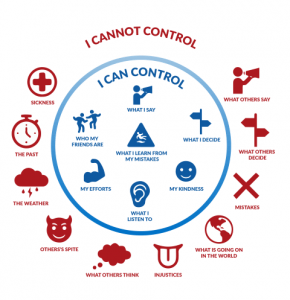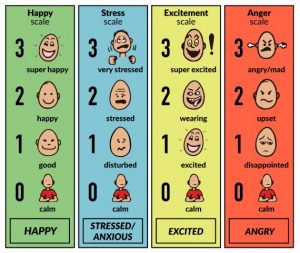With Qingming Festival coming while all of us are in lockdown, it is not easy to handle everything at the same time. We talked to our school psychologists and nurses this week. Here is what they recommend.
Anxious about the lockdown. The need to have a routine
The lockdown is potentially a source of anxiety as it is out of our control. Not controlling a situation can increase the anxiety level of children as well as adults, it is thus important to give children some responsibilities for which they can have control over, like arranging family games, preparing a menu, cooking a favourite dish, organising a movie night, setting the table, looking after plants and animals.
These little gestures and daily routines give children responsibilities and can provide them with a sense of accomplishment.
Setting up routines of well-being is also very beneficial, especially if applied daily: waking up at the same time every morning, showering, getting dressed, having breakfast, meeting around the table, etc.
Planning for the day or the week so that everyone can alternate between times dedicated to work and study and times dedicated to recharging, are also welcome.
Limiting the access to information, all media included.
When information and articles we watch or read bring their lot of bad news, it can be worrying to be facing this multiplicity of resources, regardless of the medium used.
To avoid adding stress, it is recommended to limit the access online and the access to the news to children, while keeping a responsible attitude towards the questions children may be asking themselves.
The lockdown is the occasion to create new types of interaction with your family, new solidarities, and use everyone’s creativity to calm potential anxieties. For that, it is important to bring answers to the questions asked by children without going beyond their own questionings.

Feeling of being stuck. Expressing your emotions.
Feeling like you have no freedom not only can be a cause of stress but can also bring feelings of loneliness and boredom. When several negative feelings add up to each other, anxieties can become more regular, which then can lead to mood changes (irritability, anger, sadness).
If this persists, it is advised to apprehend things with a new angle, to rethink our approach towards the situation, to accept it to better manage it, and make the best out of it. You can welcome and accompany children’s emotions and help them taking distance from the current situation by trying to distinguish what is possible to control from what isn’t.
To do so, you can create a box of emotions, with the use of post-its, sheets of paper, or prepare an emotions thermometer or scale. The objective is to give the possibility to children to express themselves the way they want: a few words, a little drawing, etc.

Working routine and sleep
Finally, it is important to maintain a certain routine, whether around e-learning or work, or when it comes to off time, time of solitude, or collective time, shared with family members.
Planning dedicated time and arranging a special spot for homework can also be beneficial. It can improve concentration and enable children to develop new ways of learning, such as learning through movement, through visual elements or through auditive methods.
It is necessary to limit time screen (despite the online classes throughout the day). Children can spend a lot of time in front of a computer. The spare time before bed can thus be the occasion to do another type of activity, such as leisure reading, listening to music, to a podcast, etc., while favouring gentle and stress-free activities.
A presentation with numerous pieces of advice created by our nurses regarding the child and teenager’s sleep will be communicated over the next few days, but for now, try to stay away from the screen one hour before bedtime.